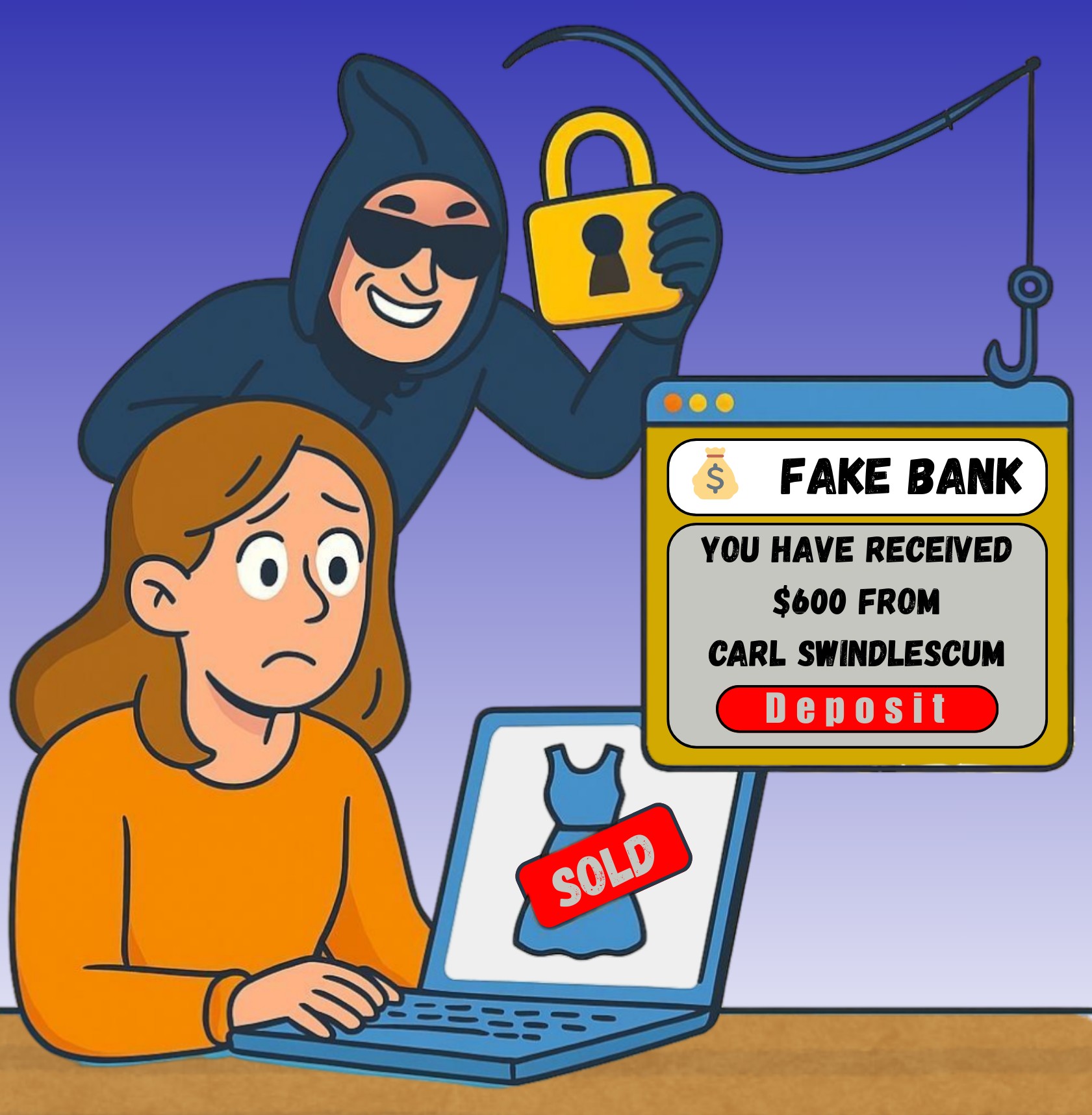 Online resale platforms such as VarageSale, Vinted, and Facebook Marketplace have become popular destinations for people who want to make additional income or find affordable items. However, wherever there is money and convenience, there are also scammers. A growing trend now targets sellers directly with fake payment verification schemes, designed to trick people into providing money or personal information.
Online resale platforms such as VarageSale, Vinted, and Facebook Marketplace have become popular destinations for people who want to make additional income or find affordable items. However, wherever there is money and convenience, there are also scammers. A growing trend now targets sellers directly with fake payment verification schemes, designed to trick people into providing money or personal information.
These scams exploit the natural excitement of making a sale. You post an item, receive a message that it has been sold or reserved, and then you are told that payment is pending but only if you “verify” your account. Behind this promise of a quick payout is a trap meant to steal your financial details, passwords, or even convince you to send money first.
🕵️♀️ How the Scam Works
Scammers have refined their methods to appear convincing. Their tactics may differ, but most share the same structure: creating urgency, pretending to be legitimate, and pressuring you to act outside of the platform’s security measures.
💰 False Sale Notices
You receive a message claiming that your item has been sold or reserved. This creates the illusion of success and lowers your guard.
🏦 Payment “Held” Until Verification
The scammer claims that your funds are locked in a system and will only be released if you verify your identity or account details. In truth, the goal is to obtain your sensitive information.
💰 Deposit Demands
Fraudsters create fake listings in several cities. When a buyer shows interest, they are pressured to send a deposit with claims that many others are waiting. Once money is sent, the scammer vanishes.
💸 Advance Payment and Shipping Traps
Some pose as generous buyers, offering to pay in advance or cover shipping. They direct sellers to a fraudulent e-transfer or payment processor page where login credentials are harvested.
🔗 External Verification Links
The messages always include a suspicious link. These websites are designed to look authentic but exist only to steal data.
🚩 Red Flags to Watch
Scams succeed when victims act quickly and overlook the details. Taking a moment to review communication can help sellers identify warning signs:
📩 Outside Platform Communication
Scammers shift the conversation to email, text, or third-party apps instead of keeping it on the official system.
📝 Unprofessional Language
Poor grammar, spelling mistakes, and awkward phrasing are frequent signs of fraud.
🌐 Suspicious Web Addresses
The links provided do not match the official domain of the platform or payment processor.
🔒 Demands for Sensitive Information
No legitimate buyer or platform representative will ask for identification, banking details, or login credentials.
⏳ High-Pressure Tactics
Scammers often warn that you must act immediately or risk losing the sale or payment.
✅ Protecting Yourself as a Seller
You do not need to be a security expert to avoid these scams. Following a few basic principles will help you stay safe.
🚫 Never Click Unknown Links
Always access your sales platform directly through the official app or website.
💬 Keep All Conversations on the Platform
Legitimate buyers and support teams will not request communication outside of the official system.
👤 Check Buyer Profiles
Be cautious of accounts that are new or have little history.
📢 Report Suspicious Messages
Notify the platform if you encounter fraudulent attempts so that other users can be protected.
🔐 Secure Your Accounts
Enable two-factor authentication on your email, bank, and selling accounts.
✅ Know the Platform Rules
Platforms such as VarageSale will never require payment verification through external websites.
These scams are spreading across all online sales platforms. They not only result in financial loss for individuals but also undermine trust in community marketplaces. For many households, these platforms are an important way to supplement income. Falling victim to fraud can mean losing both money and confidence in online selling.
Remaining vigilant, taking time before clicking, and reporting suspicious activity is not only personal protection but also a way to strengthen the community. The more sellers recognize these schemes, the less effective scammers will be.
- Log in to post comments
